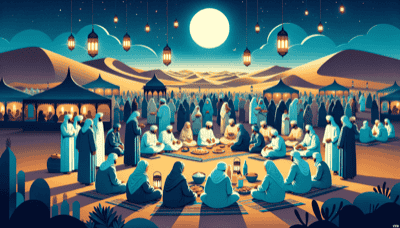We're here to help you keep count of the days to or since a date. Just click the button below and enter your chosen date to get started. Also choose the suggested days or search for a special day above #countingthedays

Eid al-Fitr, marking the end of the fasting month of Ramadan, is an important religious holiday celebrated by Muslims worldwide, including those in Rwanda. As a country with a diverse religious landscape where Islam is practiced by a minority of the population, Eid al-Fitr holds special significance for the Muslim community in Rwanda.
The history of Islam in Rwanda dates back to the pre-colonial era, with Arab traders introducing the faith. However, it gained more prominence during the colonial period under German and Belgian rule. The Muslim population grew over time, and today Muslims constitute a small but significant part of the Rwandan demographic mosaic.
On Eid al-Fitr:
Communal Prayers: Muslims gather for Salat al-Eid, special communal prayers held in mosques or large open spaces known as musallas. In Kigali, the capital city, and other regions with significant Muslim populations, large congregations come together for this purpose.
Charitable Acts: Before heading to prayer, Muslims perform an act of charity known as Zakat al-Fitr or Fitrah, giving to those in need to ensure everyone can celebrate Eid.
Feasting: After a month of fasting from dawn until sunset, food plays a central role on Eid. Families and friends share meals that often include special dishes and sweets unique to their cultural traditions.
Clothing: It is customary for people to wear new or their best clothes on Eid as a sign of celebration and respect for this auspicious day.
Socializing: The day is marked by visits to relatives' and neighbors' homes. It's common for Rwandan Muslims to exchange gifts and extend good wishes of "Eid Mubarak" or "Umuganura mwiza" (meaning good harvest festival) among themselves.
Reflection & Joy: Beyond feasting and socializing, Eid al-Fitr serves as a day of reflection on the spiritual growth achieved during Ramadan. It's also an occasion filled with joy as children often receive money or gifts from elders.
In recent years, events around this festival are not only limited within Muslim communities but are also recognized by other Rwandans who may join in solidarity or through interfaith initiatives that foster national unity and cultural appreciation.